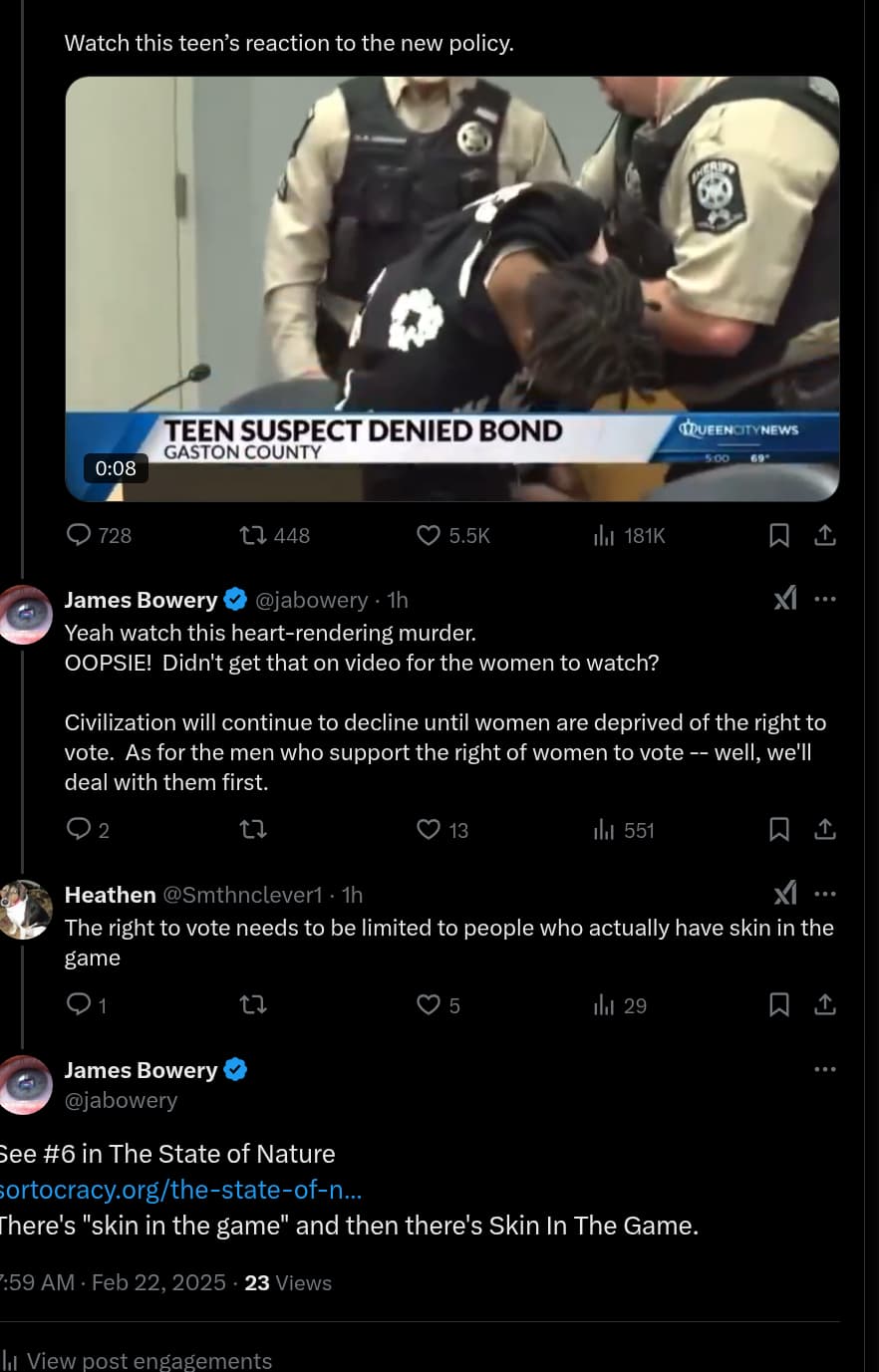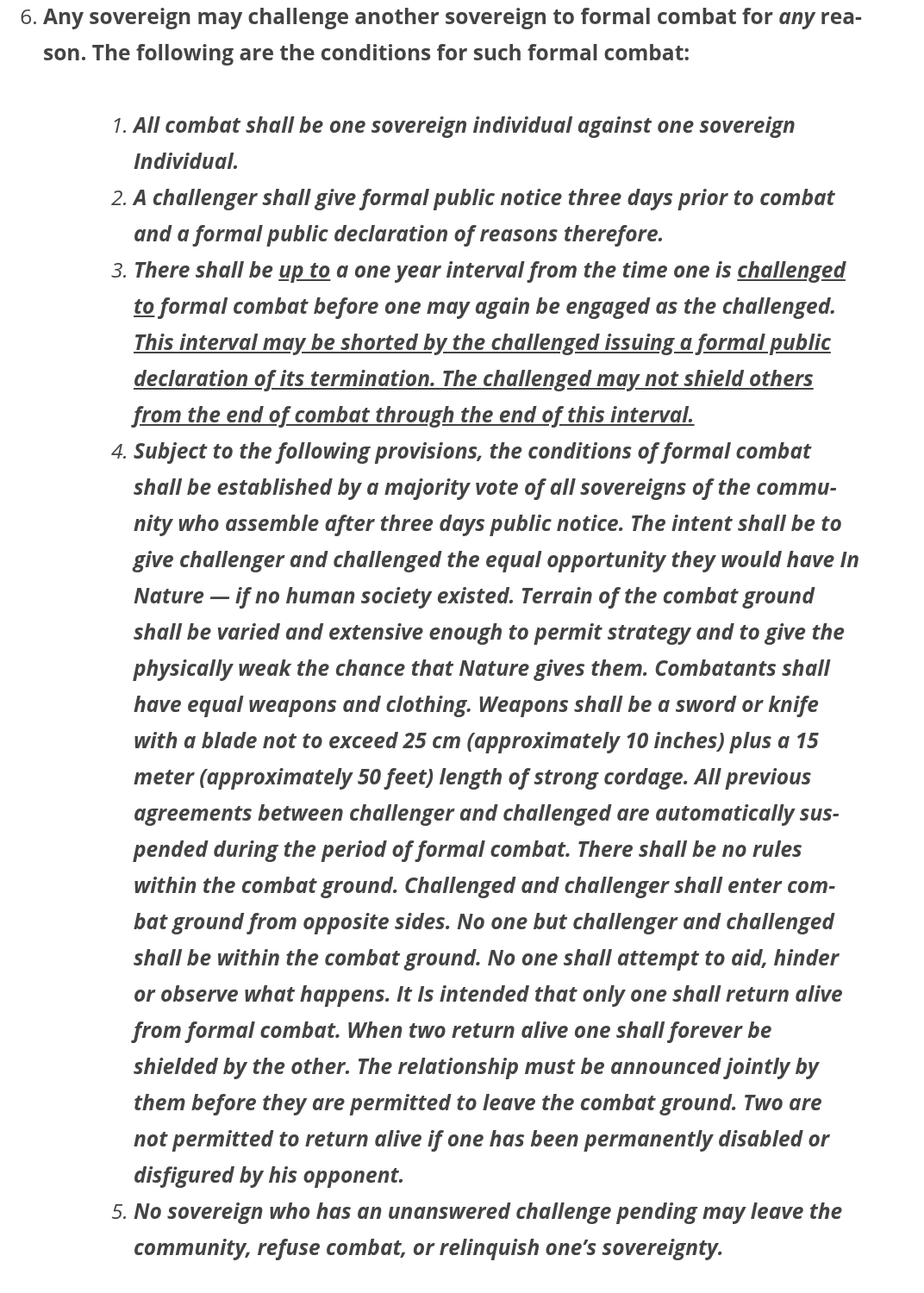Skin in the game is a great concept, and I fully agree with it—but it depends on fast feedback. The problem is that with voting the feedback isn’t fast.
At a national level, the consequences of our actions are delayed. Major changes rarely happen within a few years. The last financial crisis didn’t just occur under the “dumber” Bush—it was years in the making. The Afghanistan debacle wasn’t solely Joe Biden’s fault. The declining birth rate didn’t just happen overnight. If the national debt truly matters, it took a long time before it showed any real consequences.
We experience both the benefits and the fallout of collective actions spanning millions of people across different timeframes. It’s rarely obvious what the impact of our votes will be, and even years later, we can’t say with certainty. What was the long-term effect of no-fault divorce?
I happen to be from a generation that was of military age between the Vietnam War and the Gulf War. If I had been subjected to mandatory service, would it have been the same level of “skin in the game” as the boomers who fought in Vietnam or those born after me who served in later conflicts?
Do military veterans make better voting decisions than the rest of us? Do firefighters? I highly doubt it. The consequences they face are tied to their career choices, not their voting decisions. And if people were forced into those jobs, it wouldn’t be a consequence of their voting, either.
A team succeeds when its members genuinely want it to succeed and are willing to make sacrifices for one another and the greater good. Military service is one form of sacrifice. Raising children, inventing new things, or simply excelling at an honest job—whether as a janitor or an engineer—are others. Putting the nation’s well-being above individual interests is a real sacrifice.
The balance between personal success and collective success is difficult to quantify, but right now, it’s completely out of whack.
The larger the group, the harder it is to foster unity. The more diverse the people, the harder it is to maintain cohesion. Multiculturalism, by definition, works against unity.
People need an answer to the question: Why should I care?
- Get vagrants, drug addicts, and the mentally ill off the streets in LA—why should I care?
- Stop gang violence in Chicago—why is that my problem?
- Ensure trans people feel comfortable in restrooms or women feel comfortable in the restroom-- why do I care?
Leadership has to provide answers that show why these things benefit both the nation and the individual. The larger the group, the harder it is for people to relate to one another or agree on what is good for the group.
In a homogeneous society, most people agree on what is good and bad. In smaller groups, they can see the results of their actions firsthand. When there’s disagreement, they can work it out amongst themselves.
If I’m unwilling to sacrifice for what someone else values, and they won’t sacrifice for what I value, then why are we pretending to be on the same team?
This is where we are now—competing factions fighting to impose their values on others through sheer power.


